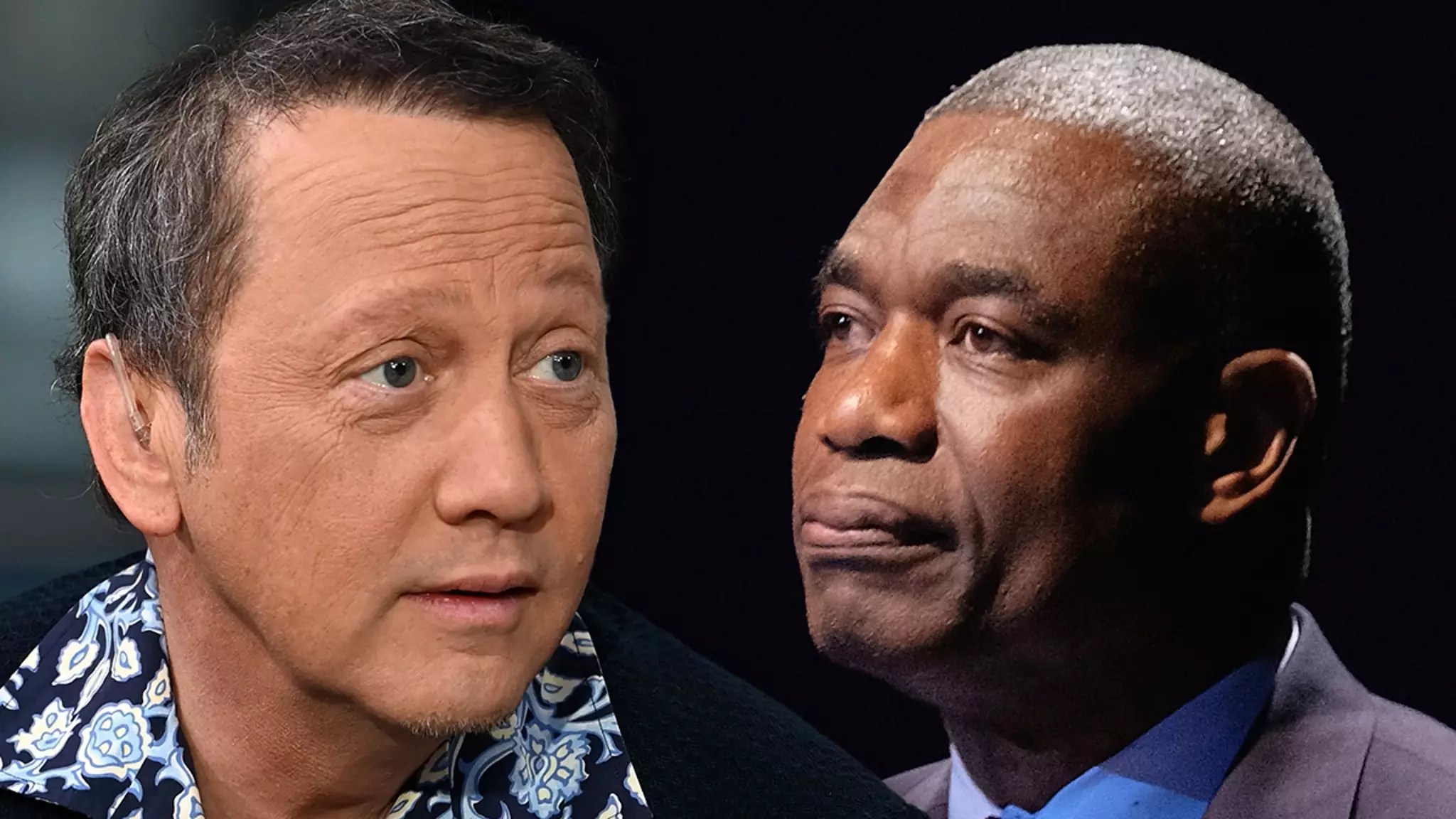In the realm of celebrity tributes, sharing condolences often serves as a collective moment of unity, acknowledging loss and honoring the legacy of the deceased. However, comedian Rob Schneider’s recent remarks following the death of basketball legend Dikembe Mutombo illuminate how personal beliefs can overshadow genuine expressions of sympathy, leading to public backlash and controversy.
Following Mutombo’s death, which was a devastating loss felt broadly within the sports community and beyond, Schneider took to a social media platform to express his grief. Initially, his message began with a respectful “Rest in Peace” statement, creating an expectation of a heartfelt homage. Unfortunately, what transpired next transformed the tribute into a contentious dialogue, where Schneider pivoted from mourning to politicizing the issue of vaccinations. His post referenced a video Mutombo made in 2021 promoting the COVID-19 vaccine, parsing the tragic timing of Mutombo’s death from brain cancer at the age of 58 with the vaccination he had endorsed.
In making this tenuous connection, Schneider propelled himself into a landscape where sensitivity and respect for the deceased were abandoned in favor of championing his anti-vaccine rhetoric. This shift from mournful remembrance to public speculation about vaccines and health issues smacks not only of insensitivity but also of a broader societal issue where grief is exploited to propagate personal agendas.
Unsurprisingly, Schneider’s post incited a whirlwind of responses from social media users, many of whom condemned his remarks as callous and inappropriate. As people rallied to defend Mutombo’s memory, expressing that he had been publicly battling brain cancer for some time, the consensus online was largely critical of Schneider’s approach. Comments such as “He had brain cancer. So your correlation ain’t correlating” exemplified the frustration felt by many, reflecting a belief that Schneider’s arguments lacked both compassion and factual grounding.
Such reactions expose a broader concern about the role of celebrities in shaping public discourse. By leveraging high-profile deaths for personal agendas, particularly concerning polarizing issues like vaccinations, they risk undermining important conversations about health and responsibility with divisive rhetoric. Schneider’s comments reflect not only a miscalculation of public sentiment but also a troubling trend of conflating personal ideology with matters of human dignity.
Rob Schneider’s decision to use the death of Dikembe Mutombo as a vehicle for anti-vaccine sentiments highlights a significant rift in how society navigates expressions of grief and controversy. While public figures often feel the pressure to authentically voice their perspectives, the blend of personal belief and the respect owed to those who’ve passed is a delicate balance. Moving forward, it is crucial for both individuals and public figures to recognize that, during times of mourning, empathy should triumph over ideology. Ultimately, Schneider’s misstep serves as a reminder of the responsibility we bear when voicing our opinions, especially in the shadow of loss.







Leave a Reply